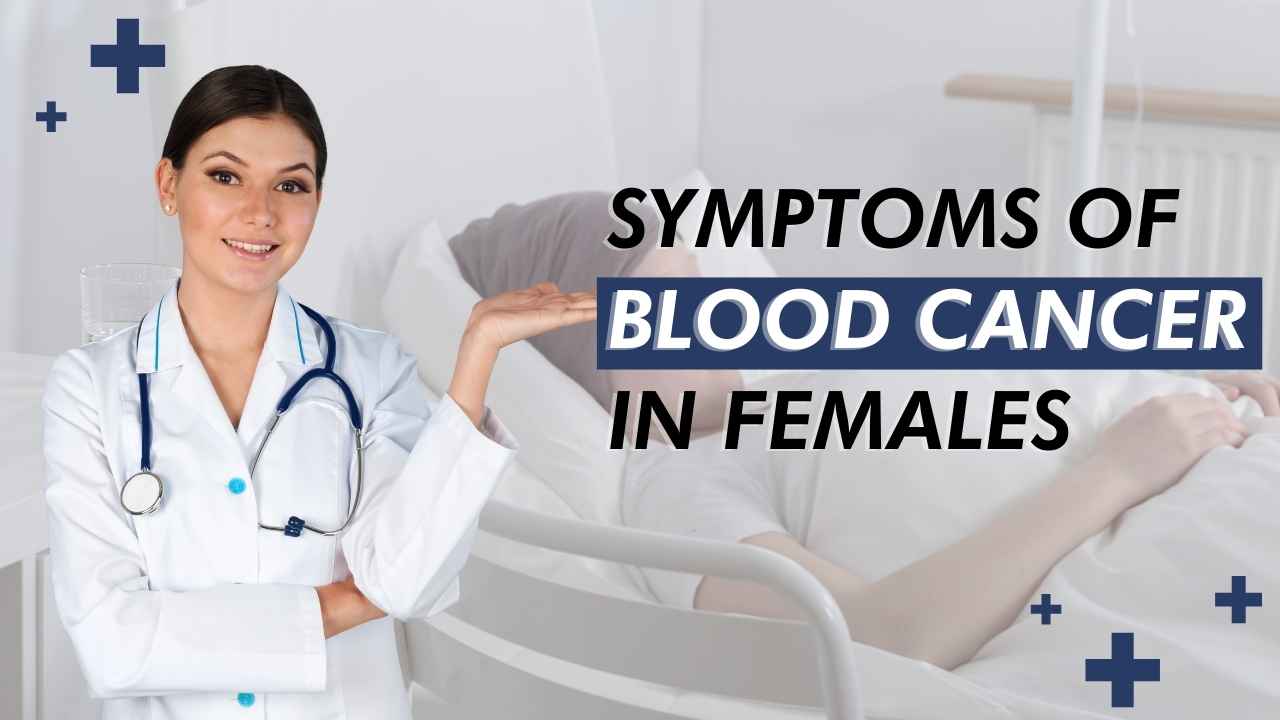
Blood cancer is often hard to diagnose early on, so it’s important to be vigilant about any changes in your health. There are many types of blood cancer, and each one has its own set of signs and symptoms. While some signs and symptoms may overlap, knowing what to look for can help you get an early diagnosis and improve your chances of survival.
This guide provides an overview of the most common signs and symptoms of blood cancer, as well as tips on how to get help if you think you may have it.
Blood Cancer Symptoms in females
While the symptoms of blood cancer in females can vary depending on the type, there are some general signs that may indicate you have the disease. If you experience any of the following symptoms, it’s important to see a doctor right away:
- Unexplained fatigue or weakness
- Loss of appetite or sudden weight loss
- Fever or night sweats
- Persistent infections
- Enlarged lymph nodes, liver, or spleen
- Easy bruising or bleeding
- Anemia
If you have any concerns about your health, it’s always best to speak with a doctor. They will be able to run tests and give you a more specific idea of what may be going on.
Diagnosing the blood cancer
If you think you may have blood cancer, the first step is to see your primary care physician. They will likely refer you to a hematologist, a doctor who specializes in blood disorders, for further testing.
A hematologist will typically order a complete blood count (CBC) as well as a blood smear. In some cases, they may also order a bone marrow biopsy. If any of these tests come back abnormal, it could indicate that you have blood cancer.
Read Also – Why is Liver Cancer So Deadly
Treating blood cancer
After the diagnosis has been made, the next step is to develop a treatment plan. The treatment for blood cancer will vary depending on the type and stage of the disease. In some cases, treatment may only be necessary if the cancer is causing symptoms. In other cases, treatment may be more aggressive
Treatment options for blood cancer include:
- Chemotherapy
- Radiation therapy
- Surgery
- Bone marrow transplant
- Clinical trials
If you have blood cancer, it’s important to work with a team of specialists to create a treatment plan that’s right for you.
When to See a Doctor? and Questions to Ask Your Doctor About a Blood Cancer?
If you experience any of the symptoms of blood cancer, it’s important to see a doctor right away. They will be able to run tests and give you a more specific idea of what may be going on
When you see your doctor, they will likely ask you about your medical history and symptoms. Be sure to tell them everything that’s been going on so they can get a clear picture of your health. You may also want to ask your doctor about:
- What type of blood cancer do I have?
- What stage is my blood cancer?
- What are my treatment options?
- What are the side effects of treatment?
- How long will I need treatment?
- Is there anything I can do to manage my symptoms?
- What is the prognosis for people with my type of blood cancer?
If you have any questions or concerns about your health, don’t hesitate to speak with your doctor. They can help you find the answers you’re looking for.
Living with blood cancer
A diagnosis of blood cancer can be frightening, but it’s important to remember that there are many treatments available and most people with the disease go on to live long and healthy lives If you have blood cancer, there are a few things you can do to help manage your symptoms and side effects:
- Get plenty of rest
- Eat a healthy diet
- Exercise regularly
- Manage stress
Speak with your doctor about any concerns you have. They can help you find ways to cope with your diagnosis and treatment.
Patient Feedback
Great doctors, Good facilities, caring and helping staff. I recommend this hospital for day care services.
![]()
![]()
Sangram Shinde
All doctors r very good. There treatments is best. Other staff also good. The service of nurses is great...Hospital is always clean.
![]()
![]()
Vaishali Aitawade
All services provide by hospital are nice and on time. Doctors are polite and co-operative with patient.
![]()
![]()
Ankita Jagtap
All services provided by hospital is good. Hygiene maintained well.Even at night good care provided.
![]()
![]()



